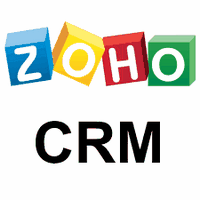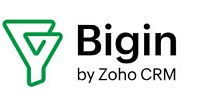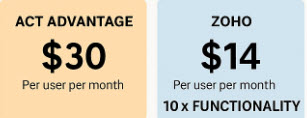 When customizing your Zoho CRM modules, choosing the right field type is key to capturing accurate and useful data. Whether you’re setting up a sales pipeline, contact form, or support ticketing system, understanding the field types available in Zoho CRM can streamline your workflows and enhance your reporting.
When customizing your Zoho CRM modules, choosing the right field type is key to capturing accurate and useful data. Whether you’re setting up a sales pipeline, contact form, or support ticketing system, understanding the field types available in Zoho CRM can streamline your workflows and enhance your reporting.
Here’s a comprehensive breakdown of Zoho CRM’s field types and what each one is best used for:
📝 Text Fields
- Single Line Text: Capture short strings like names, cities, or job titles. It supports up to 255 characters—perfect for concise input.
- Multi-Line Text: Need space to elaborate? This field allows multiple lines of input and comes in three sizes. Ideal for notes, comments, or descriptions.
📧 Contact Details
- Email: Accepts only valid email formats and renders them as clickable links. Essential for communication tracking.
- Phone: Records phone numbers with country code support. You can format it to match your regional standards.
✅ Selection Fields
- Picklist: Provides a dropdown menu for users to choose a single option from predefined values.
- Multi-Select Picklist: Lets users choose multiple options from a predefined list. Ideal for tagging or categorization.
📅 Date and Time Fields
- Date: Captures only the date. Useful for birthdates, due dates, or appointment scheduling.
- Date-Time: Records both the date and exact time—great for timestamping events or meetings.
🔢 Numeric Fields
- Number: Accepts integers or decimals. Common for quantities, counts, or scores.
- Decimal: Stores precise decimal values, making it ideal for calculations and financial entries.
- Currency: Designed for monetary amounts with currency symbols and support for exchange rates.
- Percent: Stores values as percentages (e.g., 85%), often used in analytics or performance metrics.
- Long Integer: Stores large whole numbers. Best used when the number might exceed standard integer limits.
🔁 Auto and Calculated Fields
- Auto Number: Automatically generates a unique ID based on a format you define (e.g., INV-001, LEAD-2025).
- Formula: Allows custom calculations based on other fields—think Excel formulas but CRM-native.
- Rollup Summary: Summarizes or aggregates data from related records (e.g., total deals linked to an account).
📌 Boolean and Link Fields
- Checkbox: Simple on/off switch for binary values like “Yes/No” or “Active/Inactive.”
- URL: Stores and displays clickable links—ideal for websites, LinkedIn profiles, etc.
🔗 Relationship Fields
- Lookup: Connects the record to another module (e.g., link a contact to an account).
- Multi-Select Lookup: Allows linking to multiple records from another module.
👥 User and Data Upload Fields
- User: Assigns a record to a Zoho CRM user—useful for tracking ownership.
- File Upload: Enables file attachments (e.g., contracts, receipts, resumes) directly in the record.
- Image Upload: Specifically for image files like product shots, profile pictures, etc.
🧾 Advanced Data Structures
- Subform: Lets you add a mini-table (like a grid) within a record—great for line items or related entries.
Final Thoughts
Understanding these field types empowers you to build smart, efficient, and user-friendly modules in Zoho CRM. Choose wisely and you’ll reduce data errors, increase usability, and enhance your analytics capabilities. Need more help customizing your Zoho CRM database? Give us a call at 561.470.5450.


